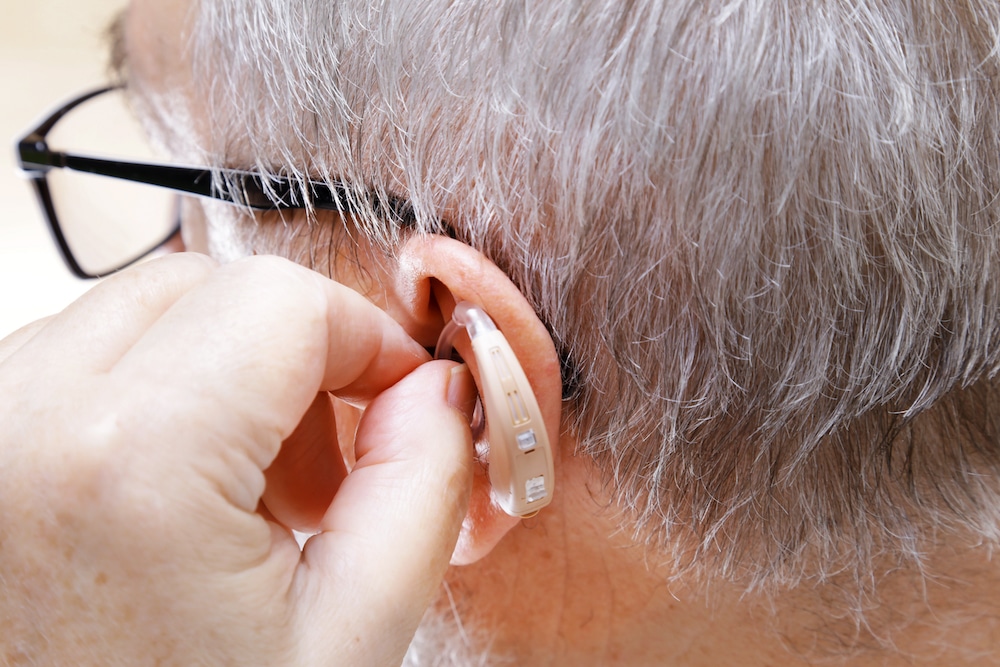
If you’ve recently been told you’re in need of hearing aids, and you’re not sure about whether they’re the right choice for you, it’s important to consider all pros and cons. After all, we all know just how beneficial a pair of hearing aids can be, and it’s best to talk through this decision with your own audiologist, but you might be wondering right now about the potential side effects.
And to help you walk into a hearing test or aftercare meeting with all the information you need, here are the most common side effects people tend to have when wearing hearing aids. Of course, these effects are minimal in most cases, but it’s important to remember that they can and do affect those who wear aids daily.
Headaches
One of the most common side effects of wearing and using hearing aids daily is the onset of headaches. This is due to the sudden influx of new sound in the ears, which have become used to experiencing lower levels. Headaches usually disappear after a few months, after a person becomes accustomed to using their aids and knows how to control volume levels in a variety of situations.
However, while headaches are still rare for hearing aid users, some conditions amplify the chance of experiencing them. For example, someone who was diagnosed with hearing loss by an audiologist a long time before deciding to get their hearing aids fitted will be much more likely to experience headaches when getting used to using the aids.
Sore And Itchy Ears
Some people who are new to wearing hearing aids report that their ears become sore and itchy when the aids are put in. This feeling tends to get worse throughout the day, and the hearing aids have to come out sooner thanks to the irritation build up. This can be due to a couple of things, namely poor fitting aids, as well as sensitive skin.
Indeed, if you experience this symptom, an audiologist will tell you that your hearing aids have likely been fitted improperly and may need adjusting. Aside from that, taking the aids out every now then to clean the ears and prevent a wax build up, can help to prevent that itchy feeling from occurring.
Feedback Problems
Sometimes hearing aids can experience allowing sound to get trapped, or allow it to be misdirected, and that ends up causing a feedback problem. In the ear, this sounds like
a whistling, scratching or buzzing sound, and may even sound off high pitched noises somewhere in the environment as well.
This used to be a huge problem 10 to 20 years ago. However, modern hearing aids are much more reliable, and the chance of feedback occurring will not stop an experienced audiologist from using aids to treat hearing loss at all levels. The digital processors in modern aids are designed to prevent sound from hitting the microphone in your ear directly, with feedback events being few and far between.
Tinnitus
Many people who wear hearing aids can sometimes experience a ringing in the ears that’s similar to tinnitus, but the use of hearing aids themselves does not cause an onset of tinnitus in the ear. If you’re concerned you may have tinnitus, be sure to talk to your audiologist about your symptoms, but it’s unlikely that the aids have caused it in the first place.
Those who believe they may have tinnitus as a result of using hearing aids are probably confusing the sound of ringing in the ear with the feedback that sometimes occurs when sound waves hit the wrong part of the ear canal. This could also be a sign the aids haven’t been fitted properly.
Talk To An Audiologist About Your Hearing Aid Side Effects
If you’re concerned about how hearing aids might affect you in the long run, get in touch with us here at Kampsen Hearing. You’ll be able to have a safe and confidential chat about your worries, and we can help you find the right solution for addressing your hearing loss related issues.
In an appointment with one of our experienced audiologists, we can talk you through all potential side effects of wearing hearing aids, as well as what types of hearing aids can best help to negate them. So, call us today at (813) 369-5692 to speak to a representative, and book in for an appointment that could change your perception over hearing aids for the better.